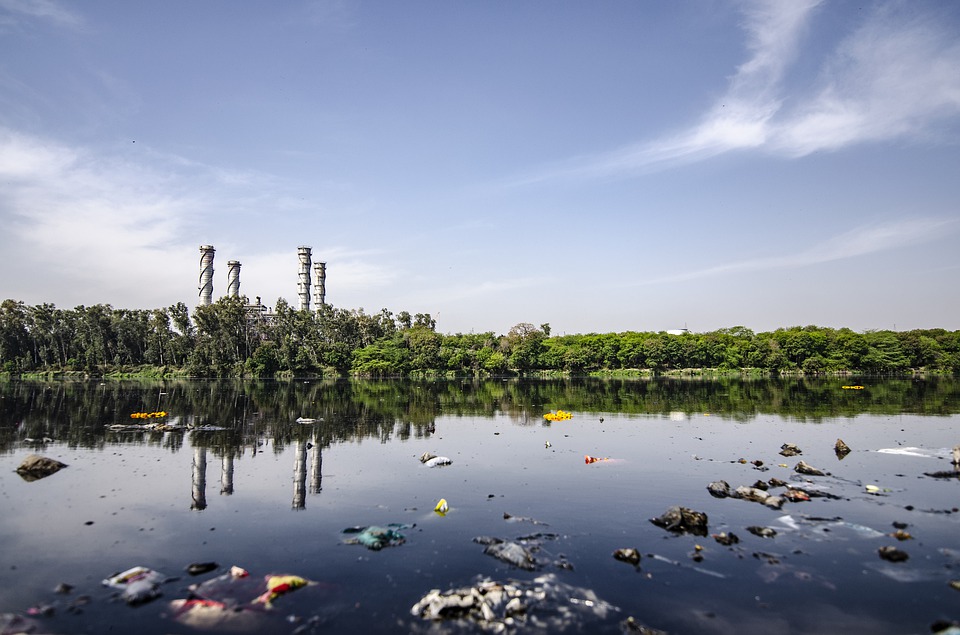DWS, Blue Deal sign MoU to combat pollution of Crocodile River
The goal of the Blue Deal internationally, is to assist 20 million people in 40 catchment areas around the world to gain access to clean, sufficient, and safe water.

- Country:
- South Africa
The Department of Water and Sanitation (DWS) has signed a Blue Deal Memorandum of Understanding (MoU) to improve the performance of the wastewater treatment plants to combat pollution of the Crocodile River in Mbombela, Mpumalanga.
The Dutch Blue Deal Programme (2018- 2030) supports National and Regional governments worldwide and strengthens Integrated Water Resources Management (IWRM) by improving knowledge and expertise, enhancing organisational functionality, and increasing cooperation with national and regional key stakeholders.
The goal of the Blue Deal internationally, is to assist 20 million people in 40 catchment areas around the world to gain access to clean, sufficient, and safe water.
Through the regional Memorandum of Understanding signed this week, the parties formalised the relationship between the regional parties.
The MoU sets out how regional, local and provincial parties will co-operate with one another for the successful implementation of combating pollution in the Crocodile River within the Inkomati-Usuthu Water Management Area (referred to as the Crocodile River Project).
“Nothing in this regional MoU shall have the effect of or be interpreted as (a) affecting any Constitutional or statutory mandate of any regional party; and (b) requiring any regional party to do anything that would conflict with the legal mandate of that party,” the agreement reads.
Water and Sanitation Deputy Minister, David Mahlobo said he expects the parties to compile an action plan and implement it, as per the agreement.
Mahlobo argued that the country does not have a national water crisis at present and people in South Africa will not run out of water, [but] the problem is that water will not be usable because of pollution.
“Too much water in South Africa is polluted and polluters must pay,” Mahlobo said.
He also warned the municipalities that if their water is not good, it has an impact on health.
“It can lead to waterborne diseases. If your water is of poor quality, it has an effect on the environment and the economy. If you pollute water, government must act.
“To the IUCMA [Inkomati-Usuthu Catchment Management Agency], stop the pollution but don’t target municipalities alone, also look at other sectors such as agriculture, industries, and mining,” Mahlobo said.
The Deputy Minister also called on the department and the Dutch partners not to only focus on the Crocodile River alone, but also look at other rivers in the Mpumalanga Province, including Olifants, Usuthu and others.
Dutch Water Authorities Chairperson, Hans Schepman alluded to the impact of climate change and emphasised the importance of cooperation and working together.
“Climate change affects all the people of the world. The unique aspect of the Blue Deal is that it runs for 12 years, and we are now left with eight years. The ultimate goal of the programme is to create a healthy and drinkable Crocodile River.
“It is about capacity building to address the lack of capacity in wastewater treatment works. The recent Green Drop results show that South Africa has a long way to go, and the signing of the MOU is proof of the required cooperation and support,” Schepman said.
Mpumalanga Cooperative Governance and Traditional Affairs MEC, Mandla Ndlovu welcomed the initiative and appealed for the inclusion of other rivers and catchments.
“We welcome the initiative to empower municipalities and appeal that this initiative must spread to other rivers and catchments.
“We also request that the Department assist the province with more resources. If you pollute water, you destroy life. Water is life, please take care of it…..clean water starts with you,” Ndlovu said.
The regional Inkomati-Usuthu Blue Deal project has a central focus on combating pollution of the Crocodile River, with an initial focus on mitigating sanitation impacts at Mbombela Local Municipality, Nkomazi Local Municipality and Emakhazeni Local Municipality.
The starting point for the Blue Deal Combating Pollution of the Crocodile River has been identified as rehabilitation and performance optimisation of two Waste Water Treatment Works, each in Mbombela Local Municipality, Nkomazi Local Municipality, and Emakhazeni Local Municipality.
(With Inputs from South African Government Press Release)
- READ MORE ON:
- Dutch Blue Deal Programme
- Blue Deal
- Crocodile River
- David Mahlobo










